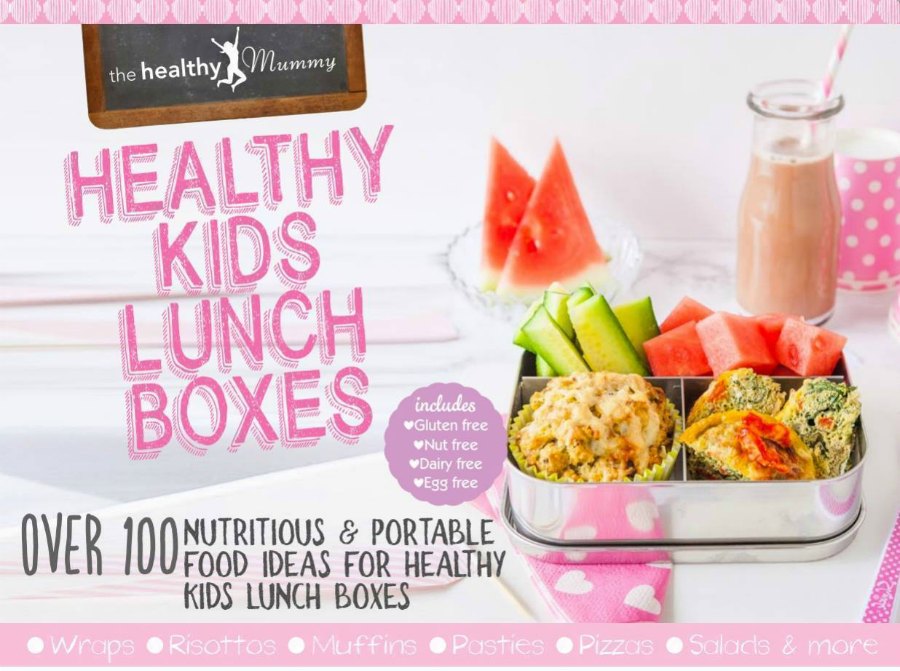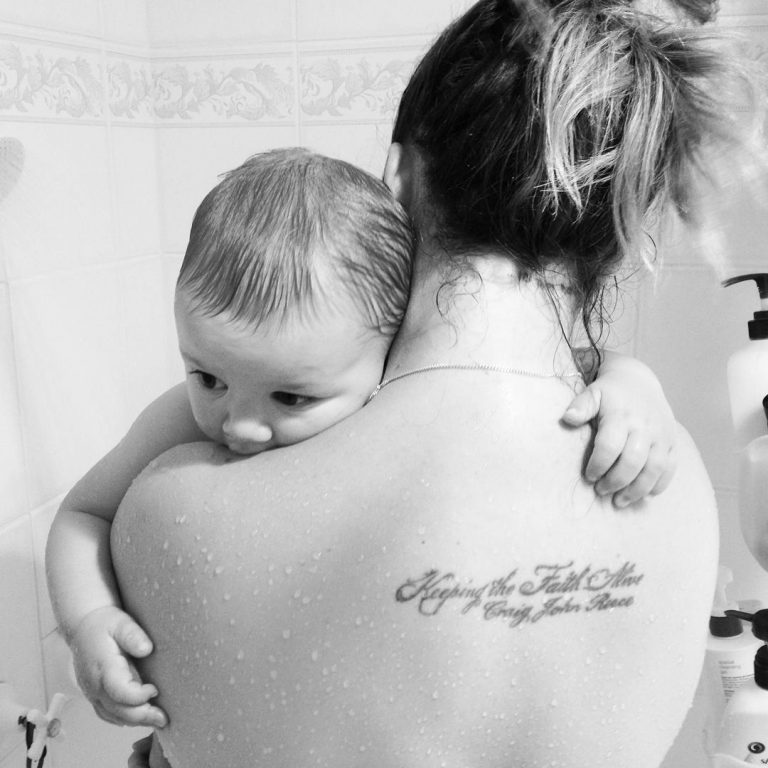Compassionate kids have parents who do these things…
Here are some things experts have noticed about parents who have considerate children.
Children are often very compassionate by nature – they often love to hug and really care about others. We all want to raise kind children, right? So the good news is, we are off to a great start.
However, social media and pressure from peers can have a major influence on how our little ones behave and turn out as they grow up. So, it is important to raise a child who is socially aware and kind to others.
When it comes down to it, you are your child’s teacher. Here are some things experts have noticed about parents who have considerate children…
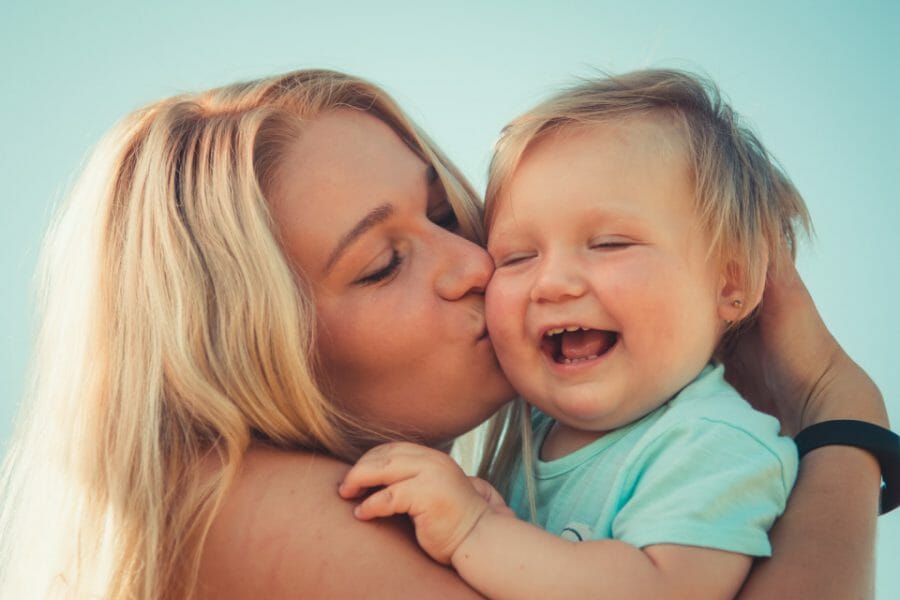
How to raise a compassionate kid
1. Tell your child they are kind
If you treat your little one like he’s always making mischief then he may grow up to believe it and behave that way. The more you tell them they are kind, the more they will be.
2. Be a positive role model
They’re learning from you. So show them how to be kind by doing something nice for someone else, or even them, and telling them why you’re doing it. “It’s nice to share, it’s nice to care.”
3. Be respectful
Don’t snatch from your child if they’ve taken a toy from another child. You’re telling them off for snatching but then you are doing it yourself. These kind of behaviours send mixed messaging.
4. Pull them up on rudeness
If they are being mean, tell them their behaviour isn’t nice. If someone is being rude or dismissive, say to them, “they weren’t very nice. But we aren’t rude back. Maybe they were having a bad day?”

5. Explain that words are just as hurtful as hitting
Teach your children that calling names is just as horrible as hitting someone.
6. Avoid setting up competition
If you say, who can tidy up the fastest, you are setting your children up to be rivals and pitting them against each other, which can cause jealousy. Instead, make it a group effort.
7. Teach them to be empathetic
If someone gets your coffee order wrong, say to your kids, “the poor waiter must be having a busy day. It’s okay, we all make mistakes.”
8. Show gratitude
Be thankful and genuine for all the nice things you receive and your child will soon copy this behaviour.
9. Talk through feelings
Don’t dismiss your child’s feelings. If they are angry or upset, talk with them through it. Then show them positive solutions.
10. Be consistent
The clearer the boundaries are, the more your child will understand them.
Affectionate parents create children who cope better as adults
Did you know the bear hug and goodnight kiss you give your child each day has been scientifically proven to help them cope better with life stressors as adults?
Another study has shown that allowing your child to play freely also appears to have a lot to do with wellbeing and moral capacities in adulthood.We’re all so busy these days as we juggle motherhood, work and oh so much more.
Author of the study is Joanna Maselko; she’s an assistant professor of professor of psychiatry and behavioural sciences at Duke University Medical Center.
Findings of the longitudinal suggest that early nurturing and warmth have long-lasting positive effects on mental health well into adulthood.
The study included 482 participants who were part of the US Providence Rhode Island birth cohort of the National Collaborative Perinatal Project.
In fact, the quality of their interactions with their mothers at the age of eight months were objectively rated by a psychologist during routine developmental assessment.
At the end of each session, the psychologist completed an assessment of how well the mother had coped with her child’s developmental tests. They also consider how she had responded to the child’s performance.
They found the amount of affection and attention she gave to her child was also categorised, with descriptors ranging from ‘negative’ to ‘extravagant’.
Study authors subsequently followed up with the children at the average age of 34 to assess their mental health, levels of anxiety and hostility, and general levels of distress.
They found that mothers who were most affectionate at the 8-month assessment were associated with adult offspring who showed significantly lower levels of distress, anxiety and hostility.
The strongest association was with the anxiety sub-scale. This pattern was seen across all the various elements: the higher the mother’s warmth, the lower the adult’s distress.
“High levels of maternal affection are likely to facilitate secure attachments and bonding,” the authors say.
“This not only lowers distress, but may also enable a child to develop effective life, social, and coping skills, which will stand them in good stead as adults.”
Interestingly, researchers at the University of Notre Dame in the US wrote a journal article saying a similar thing.
Professor of psychology Darcia Narvaez and colleagues Lijuan Wang and Ying Cheng, associate professors of psychology, found that parent touch, play and support in childhood was vital to wellbeing as an adult.
As part of the study adults were asked to reflect on their childhoods and consider:
Experts found that adults who report receiving more support in their childhoods display less depression and anxiety, as well as a greater ability to take the perspective of others and an orientation toward compassion.
Adults who report less of these parenting practices in their childhood have poorer mental health, more distress in social situations and are less able to take another’s point of view.
“Our research shows that when we don’t provide children with what they evolved to need, they turn into adults with decreased social and moral capacities,” Prof Narvaez says.
“With toxic stress in childhood, the good stuff doesn’t get a chance to grow and you become stress reactive. It’s hard to be compassionate when you are focused on yourself.
“We can see adults all around us who were traumatised or under cared for at critical times.”
Not all of us are touchy feely type people, and that’s okay. So here are 5 ways you can bring more affection into your family’s day.
1. If you have a newborn or baby, try and hold, touch or rock them in your arms as much as possible. Giving baby a bath or a massage is a great way to have skin-to-skin contact.
2. Make sure that before you drop kids at school or daycare you give them a hug. Also do this at bedtime or when you see them after school. Ensure hugging is part of your daily routine.
3. If being affectionate doesn’t come naturally, set a reminder on your Fitbit to remind yourself to randomly give your child a hug or kiss.
4. When disciplining your child, give them a hug as reassurance at the end. Or you could put your hand on their shoulder, gently to show you still love them despite their behaviour.
5. Another way you can get some one-on-one time with your children is to get busy in the kitchen.
We don’t suggest you put them to work without you, but sharing special moments making pancakes for breakfast or packing school lunches.
While we’re on the subject of the dreaded school lunch. If you want some fresh ideas then the Healthy Mummy’s Healthy Kids Lunch Boxes eBook!
This eBook contains 100 great recipes and ideas to help fill those boxes full of goodness that your kids will LOVE!
The recipes are quick and easy to make and they often use leftovers to also save you time and money.
Early nurturing and warmth have long-lasting positive effects on mental health
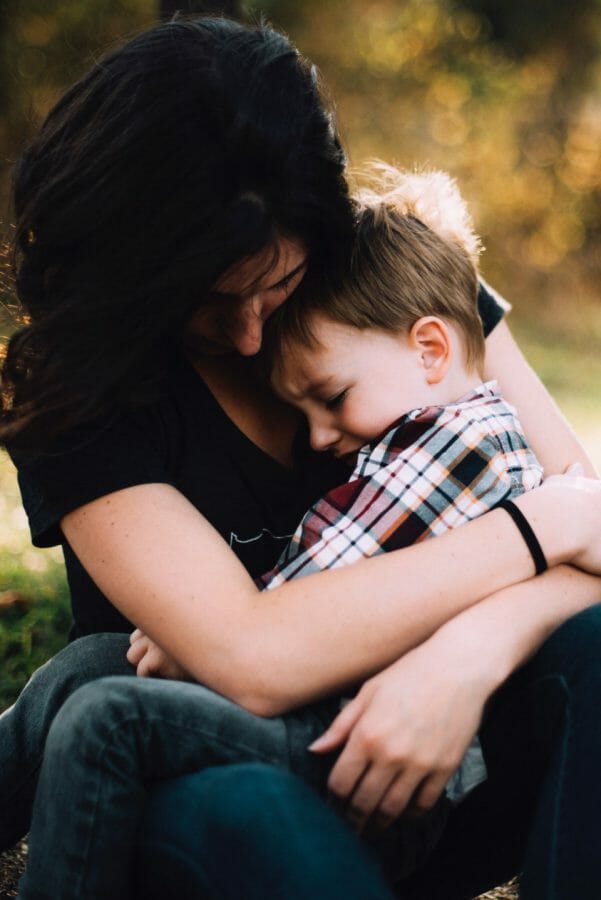
Higher the warmth, the less distress

Affection parents create compassionate kids
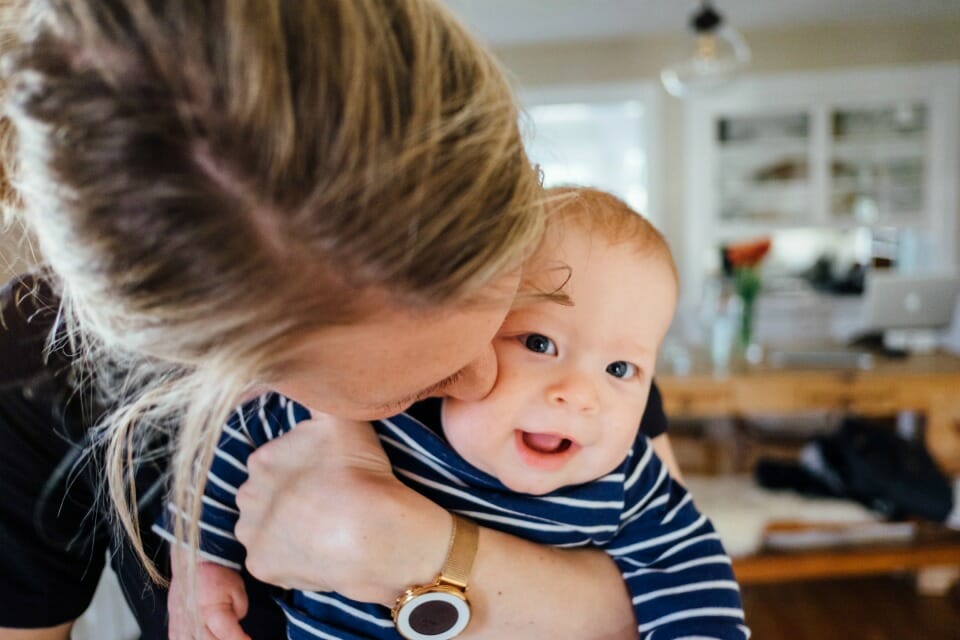
5 ways you can be more affectionate
